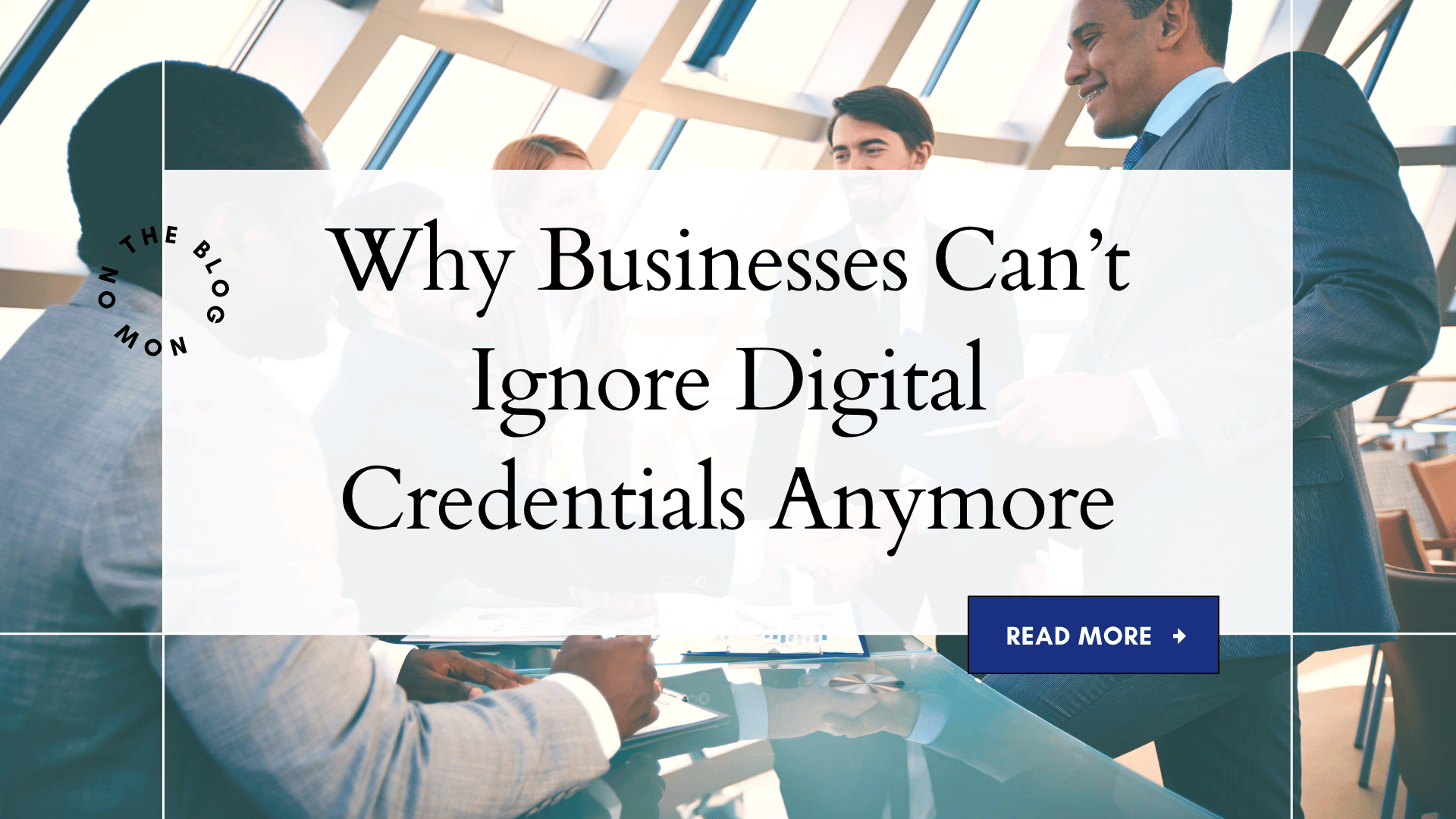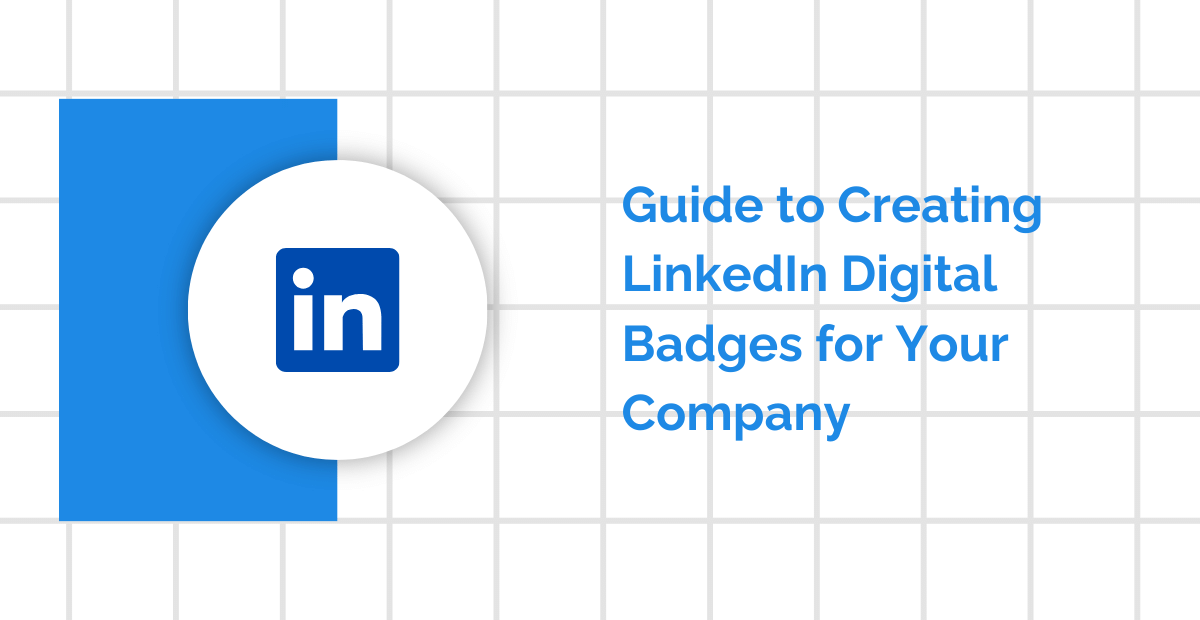Ever wonder why some companies just seem… sharper?
They move faster, hire better, and seem to always have people with the right skills at the right time. The not-so-secret secret? Many of them have embraced digital credentials.
Now, before your eyes glaze over, let me break it down. Digital credentials aren’t some corporate gimmick. They’re more like modern-day skill receipts—easy to share, easy to check, and surprisingly useful. Think of it like this: Would you rather carry a folder of paper certificates or have a neat digital backpack that holds all your skills, ready to go whenever you need?
Today, we’re going to explore why businesses—big or small—are taking digital credentials seriously. And why, if you’re a student, employee, or university staffer, it might matter to you, too.
What Are Digital Credentials? (Without the Buzzwords)
Let’s keep it simple.
Digital credentials are like online proof of your skills, achievements, or knowledge. They can come in different forms:
- Digital badges (like the kind you get for completing a Google course)
- Digital certificates (like your online degree or workshop proof)
- Micro-credentials (smaller, focused certifications on specific topics)
These aren’t just images or PDFs. They often include data that makes them verifiable—meaning someone can actually check that it’s real and not something you made in Photoshop.
Imagine you finish a course in “Intro to Data Analysis.” You get a digital certificate. Now, instead of mailing or scanning it, you just send a link or add it to your LinkedIn profile.
Anyone who clicks it can see:
- What you learned
- Who issued it
- When you earned it
- Whether it’s still valid
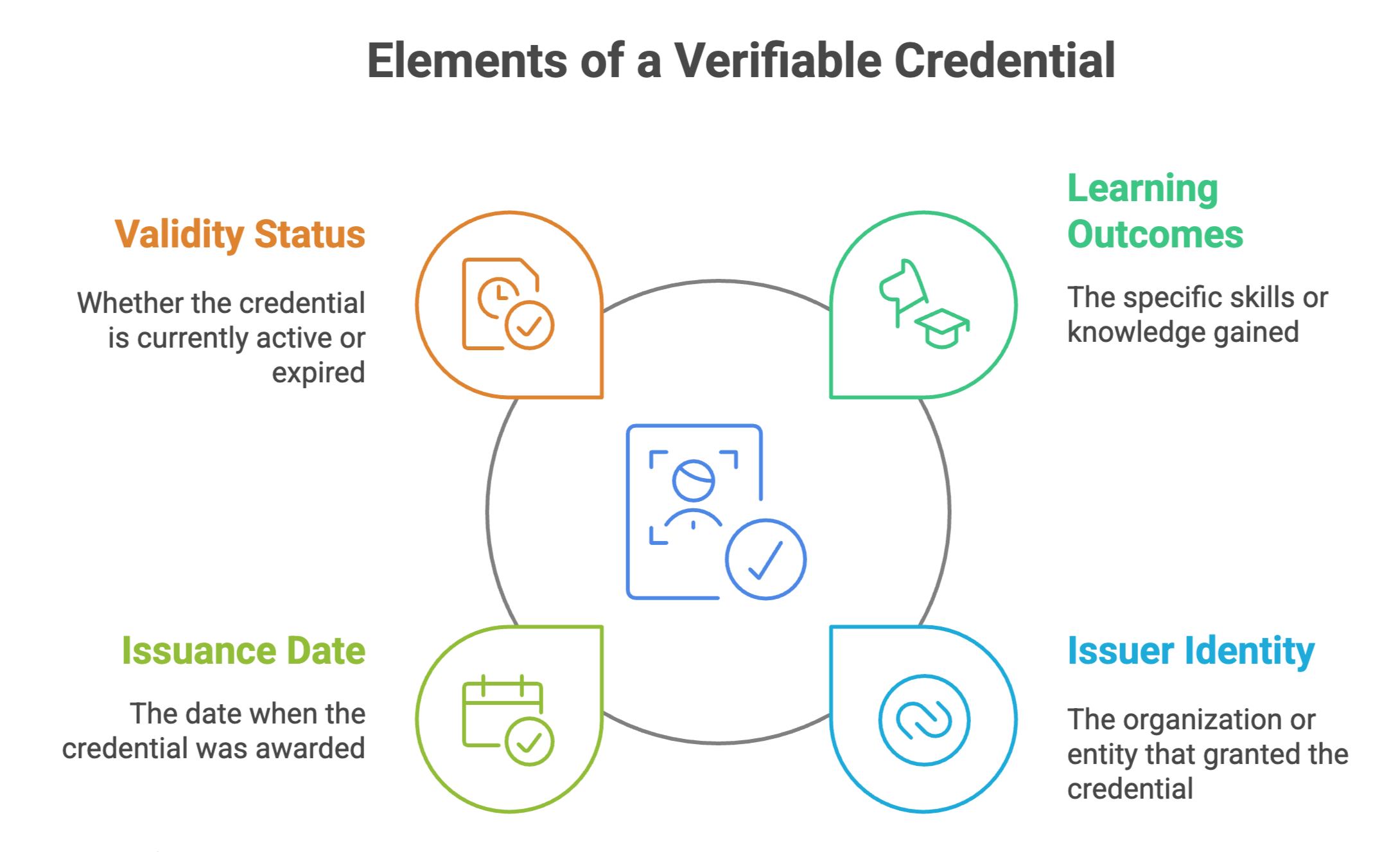
No fluff. Just facts.
Even better? You don’t need to explain it every time. The credential speaks for itself. It’s like a verified checkmark for your skills.
And it’s not just for formal education—EdTech platforms have been among the early adopters, using digital credentials to certify everything from coding skills to behavioral training. Learn how EdTech companies are using digital credentials to scale.
So, in essence, digital credentials are:
- Easier to manage than traditional certificates
- More secure thanks to technology like blockchain
- More informative because they show what someone actually knows or can do
One of the most widely used formats is Mozilla’s Open Badges, which provides a framework for issuing and verifying digital achievements across industries.
Why Do Businesses Even Care?
Alright, so what’s in it for employers?
Proving Skills Without the Fuss
Hiring managers don’t love resumes as much as you think. They’re often filled with vague descriptions and hard-to-verify claims. Digital credentials cut through that. They show real evidence of what someone can do.
Let’s be honest—phrases like “excellent communication skills” or “proficient in Excel” don’t mean much without proof. Digital credentials offer that proof, and they do it instantly. Instead of calling old employers or playing detective, hiring managers can just click and confirm.
This matters a lot in industries where compliance, security, or accuracy are key. Think:
- Healthcare: Are your nurses actually certified?
- IT: Does your new hire really know cloud computing?
- Manufacturing: Has your technician been trained on that new machine?
Boosting Employee Confidence
Let’s say an employee takes a course and earns a digital badge in project management. That badge isn’t just for show. It tells them, and their company, that they’re growing.
People love recognition, but they also love knowing that their time spent learning wasn’t wasted. Digital credentials provide that validation.
Employees who are encouraged to upskill—and are given ways to prove those skills—are more likely to:
- Take ownership of their roles
- Seek out more training
- Share their knowledge with others
It creates a ripple effect of growth. Furthermore, employees who are upskilled are more likely to recommend your workplace, thereby increasing your eNPS.
Hiring Faster and Smarter
Time is money. The longer it takes to find the right hire, the more it costs. That’s why organizations are turning to leading AI recruitment software and applicant tracking systems to transform their hiring processes. When candidates present digital credentials, it can provide the following advantages to the hiring team
With digital credentials:
- HR teams spot qualified candidates faster
- There’s less guesswork in screening
- Interviews are more focused and informed
Whether you’re hiring in the United States or further afield, this also helps HR teams spot qualified candidates faster—especially when credentials are easy to verify and track.
When it comes to onboarding international talent compliantly, solutions like Remote’s EOR make it simple to hire in the U.S. and beyond without getting bogged down in entity setup, payroll, or compliance hurdles.
And in competitive industries, that speed can make or break a company’s edge. For instance, if two companies are racing to launch a product, the one that hires and trains quicker has the upper hand.
Also, digital credentials make recruitment more inclusive. They allow hiring managers to consider candidates who may not have a traditional degree but do have certified skills from online platforms, bootcamps, or community programs.
It’s not about where you learned—it’s about what you know and can show.
Creating a Culture of Learning
When companies use digital credentials internally, it sends a message: “Learning matters here.”
It nudges employees to keep developing. It also encourages departments to share resources and recognize cross-functional talents. For example:
- A marketing intern might earn a badge in SEO or link building.
- An operations staffer might earn a micro-credential in data analytics.
Even industries like event planning are seeing value in this approach—here’s how digital credentials are helping meetings and event professionals.
Suddenly, teams start talking, collaborating, and learning from one another. That’s the kind of environment that retains top talent.
So, businesses care because digital credentials help them:
- Hire right
- Train smart
- Keep people motivated
- Stay adaptable
In short: They make good business sense.
Cost-Effective? You Bet.
Traditional training programs can be expensive. Flying people out, booking hotels, hiring trainers—it adds up.
Digital credentials offer:
- Affordable online courses
- Short, modular learning (like learning just what you need, when you need it)
- Ongoing access to material (so people can revisit what they’ve learned)
Plus, since many of these programs are online, there’s no need to shut down operations for a training day. Employees can learn at their own pace, often outside work hours.
No more flying folks out for a two-day workshop that no one remembers by Friday.
Digital Credentials = Built-in Career Development
One of the biggest reasons employees quit? They don’t see a path forward.
Digital credentials help companies build that path. When workers earn new credentials, it opens doors:
- Promotions
- Internal job transfers
- Project leadership opportunities
Think of it as giving your team a ladder, not just a title. Employees can build their own professional roadmap while staying with the same employer.
It also helps managers spot rising talent. If someone’s racking up badges in leadership or tech, maybe they’re ready for a bigger role.
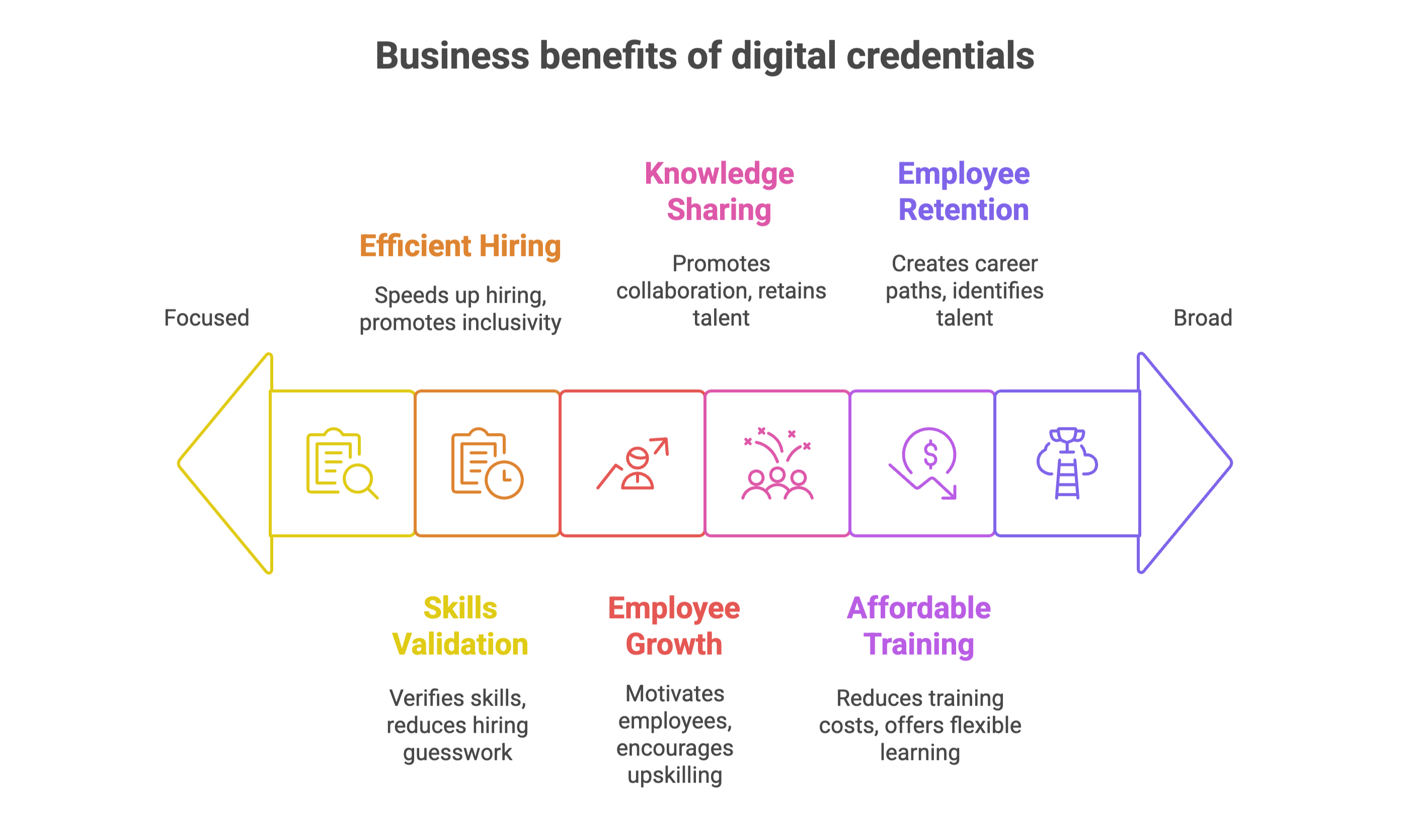
But It’s Not Just for Big Corporations
You might think only big names like Amazon or IBM use digital credentials. Not true.
Small businesses benefit, too:
- Train employees without huge budgets
- Certify new hires quickly
- Track learning progress easily
Picture a local coffee shop. The owner wants baristas trained in food safety and customer service. Instead of sending them to an expensive workshop, she signs them up for a $25 online course. They get digital badges. She keeps records. Everyone wins.
What About Trust?
One common question: How do I know it’s legit?
Great question. Most digital credentials are issued by reputable platforms or institutions. And many use secure technology like blockchain to prevent tampering.
It’s harder to fake a digital badge than it is to stretch the truth on a resume. That adds a layer of trust for employers.
Also, because these credentials are online, they can be revoked or updated if needed. So if someone’s certification expires or is found to be fraudulent, it can be removed.
In the Bigger Picture: Future-Proofing the Workforce
Let’s zoom out for a second. This isn’t just about tracking employee skills or making HR’s job easier—though it absolutely helps with both. It’s about building a workforce that’s ready for the next five, ten, or even twenty years. And that kind of readiness doesn’t happen by chance.
The world of work is shifting fast. New tools, new tech, new expectations. If employees can’t keep up, businesses can’t either. And traditional credentials—those printed degrees and outdated certificates—just can’t keep pace. Digital credentials let people learn, prove, and move forward in real time.
For example, tools like an AI business plan generator help leaders and teams strategize efficiently, combining verified skills with actionable business insights.
Think of it like this: companies used to invest in office buildings. Now, smart ones are investing in people. Verified, visible skills aren’t just good for employees—they help leaders make smarter choices, plan better teams, and respond to change without panic. It’s not about checking boxes—it’s about being ready for whatever comes next.
And here’s the quiet truth no one really says aloud: if you’re not actively preparing your workforce, you’re already falling behind. Digital credentials aren’t some future tool—they’re today’s solution to tomorrow’s problems.
Further Reading : Best Credly Alternatives for Digital Credentialing
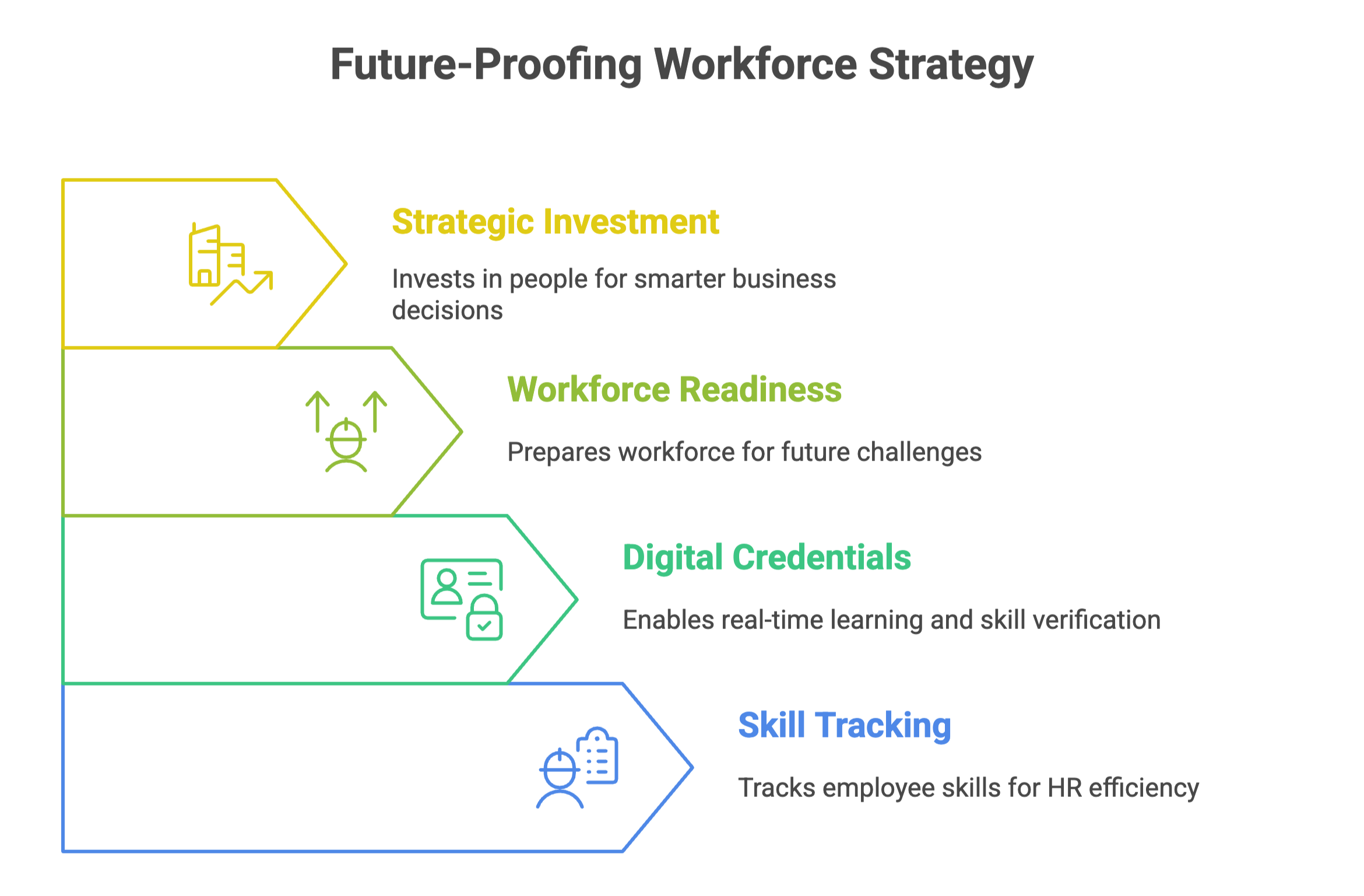
Why Businesses Should Pay Attention
Alright, let’s bring it all together—no buzzwords, no fluff.
Digital credentials are not just for show. They give businesses proof—real, verifiable proof—of what their employees know and can do. Instead of relying on vague resumes or inflated claims, teams can now see exactly which skills are certified and current. It’s like switching from guessing to knowing.
For HR teams, this means faster hiring and smoother onboarding. No more chasing paper certificates or making endless phone calls to confirm credentials. It saves time, cuts costs, and builds trust with every hire. Plus, it gives employees a clearer path to grow, which means better retention.
From a leadership angle, it’s also about staying prepared. Industries change fast. Having a workforce with verified, up-to-date skills helps businesses adapt without scrambling. Think of it as building a team that’s always ready for what’s next—not just today, but tomorrow too.
And finally, there’s the brand value. Yes, brand value. When a company supports learning and shares proof of it, they don’t just attract talent—they earn respect. Internally and externally.
So, if you’re still on the fence, ask yourself this: Do you want to stay ahead, or play catch-up later?
It’s Not Just a Trend—It’s the New Common Sense
Trends come and go. But digital credentials? They’re quickly becoming the standard.
Think about how we used to share music—CDs, mp3s, now streaming. Credentials are going through that same shift. And just like you wouldn’t carry around a stack of CDs anymore, employers and institutions don’t want to shuffle through paper certificates or vague resumes.
Digital credentials are:
- Cleaner: Everything’s in one place
- Faster: Verification in a click
- Smarter: They evolve as learning evolves
And here’s the thing: companies that embrace digital credentials now will be ahead of the curve tomorrow. They’ll have a workforce that’s nimble, skilled, and motivated. They’ll hire better, onboard quicker, and keep people longer.
On the flip side? Those stuck in paper-trail thinking might fall behind—slow to hire, slow to train, and slow to grow.
So whether you’re running a business, guiding university programs, or building your own skillset—think of digital credentials not as extra—but as essential. Like email or Wi-Fi. Just… part of how the world works now.
They’re also becoming a strategic asset in how institutions brand themselves and how businesses market their teams’ expertise. See how digital credentials can strengthen your marketing strategy or explore the latest trends in the credentialing market.
The bottom line? Digital credentials aren’t a shiny new toy. They’re a practical tool for getting real stuff done.
And if that’s not common sense, what is?
Conclusion
Let’s be real—digital credentials aren’t just another checkbox for businesses. They’re becoming the language of trust in workplaces where resumes aren’t enough. Whether you’re running a company, managing a team, or planning your own career path, these credentials can help cut through the noise. Think of them as the receipts of skill—quick to verify, easy to share, and hard to fake.
And it’s not only about keeping up with technology—it’s about making better decisions. When everyone’s claiming they “know Excel” or “led a project,” digital credentials help show proof of those claims.
Businesses save time, save money, and get the right people into the right roles faster. No fluff. Just facts, backed by tech.
If you’re curious where to start, check out CertifyMe. It helps businesses issue, manage, and verify digital credentials without any headache—and it works whether you’re a growing startup or a university team.
Want to see how it fits your needs? Book a demo call today and take the first step toward smarter credentials.

 Author :
Author : 